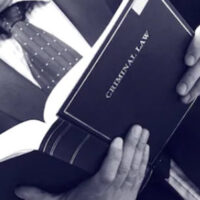Some Basics On Probable Cause

In the U.S., law enforcement officers are required to uphold certain standards when doing their job. For example, a police officer cannot just walk up to you and arrest you without a valid reason. An officer also cannot conduct a search without a valid reason. In other words, in the United States of America, a police officer must have probable cause before arresting someone or conducting a search. If an officer makes an arrest or performs a search without probable cause, it might lead to an illegal arrest or the unlawful collection of evidence.
Defining Probable Cause
The Fourth Amendment provides you with the right to be free from unreasonable searches and seizures. The Fourth Amendment provides that this right shall not be violated unless probable cause exists. Also, the Fourth Amendment provides that warrants shall not be issued to law enforcement officers unless probable cause exists. In other words, probable cause is a legal requirement that police officers must meet before making an arrest, conducting a search, or receiving a warrant.
Probable cause is a reasonable belief that an individual has committed a crime, is committing a crime, or will commit a crime. Probable cause requires that law enforcement officers have more than just suspicion, meaning it requires stronger evidence than reasonable suspicion. However, probable cause does not require that an officer be certain that criminal activity has been, is being, or will be committed.
To determine whether probable cause exists, the judge must find that an individual with reasonable intelligence would believe a crime has been committed, is being committed, or has been committed under similar circumstances.
Evidence That Can Be Used To Establish Probable Cause
There are four main types of evidence that police officers can use to establish probable cause. They are;
- Circumstantial evidence – is based on an accumulation of facts, which, when looked at together, imply that a crime has been, is being, or will be committed.
- Observational evidence – is based on what a police officer hears, smells, or sees.
- Evidence gathered using an officer’s expertise – For example, a police officer can read gang graffiti to determine if a crime has happened.
- Evidence gathered through information – For example, information gathered from an informant for hearing a call on a police radio.
Warrants and Probable Cause
For an officer to get a search or arrest warrant, they need to sign an affidavit stating the facts they know from their expertise, observation, circumstantial evidence, or evidence gathered through information. If the court agrees that probable cause exists, it will issue a warrant.
As it pertains to search warrants, it is crucial to note that law enforcement officers are generally only allowed to search for the items described in the warrant. However, if officers find other evidence or contraband of other crimes, they can seize them.
Lastly, you should know that if a police officer conducts an unlawful search and finds evidence, the evidence can’t be used against you in a court of law.
Contact an NYC Criminal Defense Attorney
If you need more information on probable cause or help with a criminal case, contact our NYC criminal defense attorney at Mark I. Cohen Esq., at 917-414-8585.
